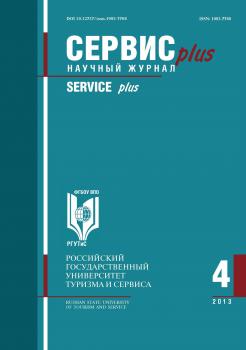A symbolic and cultural analysis of the Oriental Philosophers’ writings is invariably a matter of great challenge and difficulty. It is always full of allegory and literary divagations which intersperse a smooth flow of argumentation. This paper is written by Marklen Konurbaev, Professor of Literature at Moscow State University and his son Salavat, a student of Arabic Philosophy. The paper consists of six parts and attempts to reveal the hidden message of a famous extract from the renowned book Ihya Ulum Al Din by a Persian philosopher Ghazālī, Abu Ḥamid Muḥammad Ibn Muḥammad Al-Tūsī, devoted to the analysis of the notion of “fairness” in the doings of a ruler. The symbolic and cultural analysis of the work was performed based on the methodology propounded by Roland Gérard Barthes – a French literary theorist, philosopher, linguist and critic. This is the first ever attempt to put together the methodological efforts of a Western scholar and profoundly oriental piece of philosophy. Results of the hermeneutic study are stunning and elucidating. The paper could be recommended to the students of literature and philosophy at the universities and colleges.
hermeneutics, falsafa, Ghazzali, Gazali, Roland Barthes, semantics, islam, interpretation, Ihya, semiotics, culture, oriental culture, Sufism, state management, oriental philosophy
1. Bart R. S/Z / Per. s fr. G.K. Kosikova i V.P. Murat; Pod red. G.K. Kosikova. 3e izd. M.: Akademicheskiy proekt, 2009. 373 s.
2. Bibliya. Knigi Svyashchennogo Pisaniya Vetkhogo i Novogo Zaveta. Russkoe Bibleyskoe obshchestvo, 2012.
3. Gabitova R.M. «Universal´naya» germenevtika Fridrikha Shleyermakhera. Germenevtika: istoriya i sovremennost´. M.: Mysl´, 1985. S. 61-97.
4. Ignatenko A.A. V poiskakh schast´ya: Obshchestvenno-politicheskie vozzreniya arabo-islamskikh filosofov srednevekov´ya. M.: Mysl´, 1989. 254 s.
5. Ignatenko A.A. Kak zhit´ i vlastvovat´. M.: Progress, 1994. 348 s.
6. Ignatenko A.A. Obman v kontekste arabo-islamskoy kul´tury srednevekov´ya (po materialam «knyazh´ikh zertsal»).. Odissey. Chelovek v istorii. Obraz «drugogo» v kul´ture. M.: Nauka, 1994.
7. Kerimov G.M. Al´-Gazali: religiozno-filosofskie vzglyady. Kerimov G.M. Al´-Gazali i sufizm. Baku, 1969. S. 71-100.
8. Kirabaev N.S. Filosofiya vlasti: al-Mavardi i al´-Gazali. Sravnitel´naya filosofiya. Moral´naya filosofiya v kontekste mnogoobraziya kul´tur. M., 2004.
9. Kirabaev N.S. Sootnoshenie vlasti i avtoriteta v politicheskom uchenii al´-Gazali. Chelovek kak filosofskaya problema: Vostok - Zapad. M., 1991.
10. Kirabaev N.S. Teoriya gosudarstva v musul´manskom pravovedenii //Klassicheskiy islam. Traditsionnye nauki i filosofiya. M.: 1988. S. 9-47
11. Konurbaev M.E. Bibliya Korolya Iakova v lingvopoeticheskom osveshchenii: Spetskurs (uchebno-metod. posobie). M.: Dialog-MGU, 1998 [Konurbaev M.E. Biblija Korolja Iakova v lingvopojeticheskom osveshhenii: Speckurs (uchebno-metod. posobie). M.: Dialog-MGU, 1998.
12. Konurbaev M.E. Bibliya korolya Iakova: literaturnyy plagiat, politicheskiy manifest ili bibliograficheskoe otkrytie?. Bibliya korolya Iakova: 1611-2011. Kul´turnoe i yazykovoe nasledie / otv. red. d-r filol. nauk E.B. Yakovenko. M.: BukiVedi, 2013. S. 75-86 [Konurbaev M.E. Biblija korolja Iakova: literaturnyj plagiat, politicheskij manifest ili bibliograficheskoe otkrytie?. Biblija korolja Iakova: 1611-2011. Kul›turnoe i jazykovoe nasledie / otv. red. d-r filol. nauk E.B. Jakovenko. - Moskva: BukiVedi,
13. Konurbaev M.E. Stil´ i tembr teksta. M.: MAKS-PRESS, 2001 [Konurbaev M.E. Stil› i tembr teksta. M.: MAKS-PRESS, 2001].
14. Konurbaev M.E. Tembral´naya organizatsiya angliyskoy rechi (na materiale Biblii Korolya Iakova). Dis. … kand. filol. nauk. M., 1993. [Konurbaev M.E. Tembral›naja organizacija anglijskoj rechi (na materiale Biblii Korolja Iakova). Diss. … kand.filol. nauk. M., 1993].
15. Konurbaev M.E., Konurbaev S.M. Istoriko-germenevticheskiy ocherk filosofii «Fal´safa» na primere «knyazh´ikh zertsal» («nasikhat al´ mulyuk») Abu-Khamida Mukhammada al´-Gazali al-Tusi: istoriya i metodologiya. Servis Plus, 2014, Tom 8, Vyp. 3.
16. Konurbaev M.E., Konurbaev S.M. Istoriko-germenevticheskiy ocherk filosofii «Fal´safa» na primere «knyazh´ikh zertsal» («nasikhat al´ mulyuk») Abu-Khamida Mukhammada al´-Gazali al-Tusi: semnyy analiz. Servis Plus, 2014, Tom 8, vypusk 4.
17. Plakhotskaya, M.V., Belkin O. Slovar´ «Antichnye pisateli». SPb.: Izd-vo «Lan´», 1998.
18. Rossiya kak musul´manskiy mir: inakovost´ kak problema. / Otv. red. Smirnov A.V. M., 2010. 528 s.
19. Shleyermakher F. Germenevtika. Per. s nem. A.L. Vol´skogo. Nauch. red. N.O. Guchinskaya. SPb.: Evropeyskiy dom, 2004. 242 s.
20. Binder L. Al-Ghazzali’s Theory of Islamic Government. Muslim World, 45, 1955, pp. 229-241.
21. Crone Patricia. Did al-Ghazali write a Mirror for Princes? On the Authorship of Nasihat al-Muluk. Jerusalem Studies of Arabic and Islam, 10, 1987, pp. 167-197.
22. Fuad Baali. Society, State, and Urbanism: Ibn Khaldun’s Sociological Thought. USA: SUNY Press, 1988, 175 p.
23. Hillenbrand C. A little-known Mirror for Princes of al-Ghazali. Festschrift für Gerhard Endress, Leuven, 2004, pp. 591-99.
24. Hillenbrand C. Islamic Orthodoxy or Realpolitik? Al-Ghazali’s Views on Government. Journal of Persian Studies, 1988. pp. 81-94.
25. Lambton, Ann K. S.. The Theory of Kingship in the Nasihat-ul-Muluk of Ghazali. The Islamic Quarterly, 1, 1954, pp. 47-55.
26. Muḥsin S. Mahdi. Alfarabi and the Foundation of Islamic Political Philosophy. - London: University of Chicago Press, 2001, 264 p.
27. Sherwani, H. K. El-Ghazali on the Theory and Practice of Politics. Islamic Culture, 9, 1935, pp. 450-74.
28. S. 75-86].

















